A spark that ignited the path to revival – A mother’s perseverance
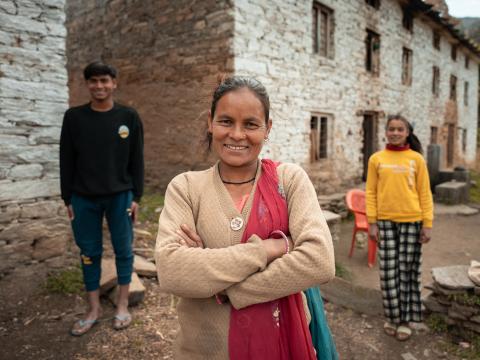
“My children weren’t well fed, couldn’t dress well, and had to go to school without school uniforms or lunch,” Amrita recalls the days she almost gave up. A single mother who was determined to make sure her children were receiving good education and were fed with nutritious food knew no bounds when it came to the welfare of her family. Her dedication and determination led 35-year-old Amrita to pave her own path of resilient livelihood, even when situations were dire.
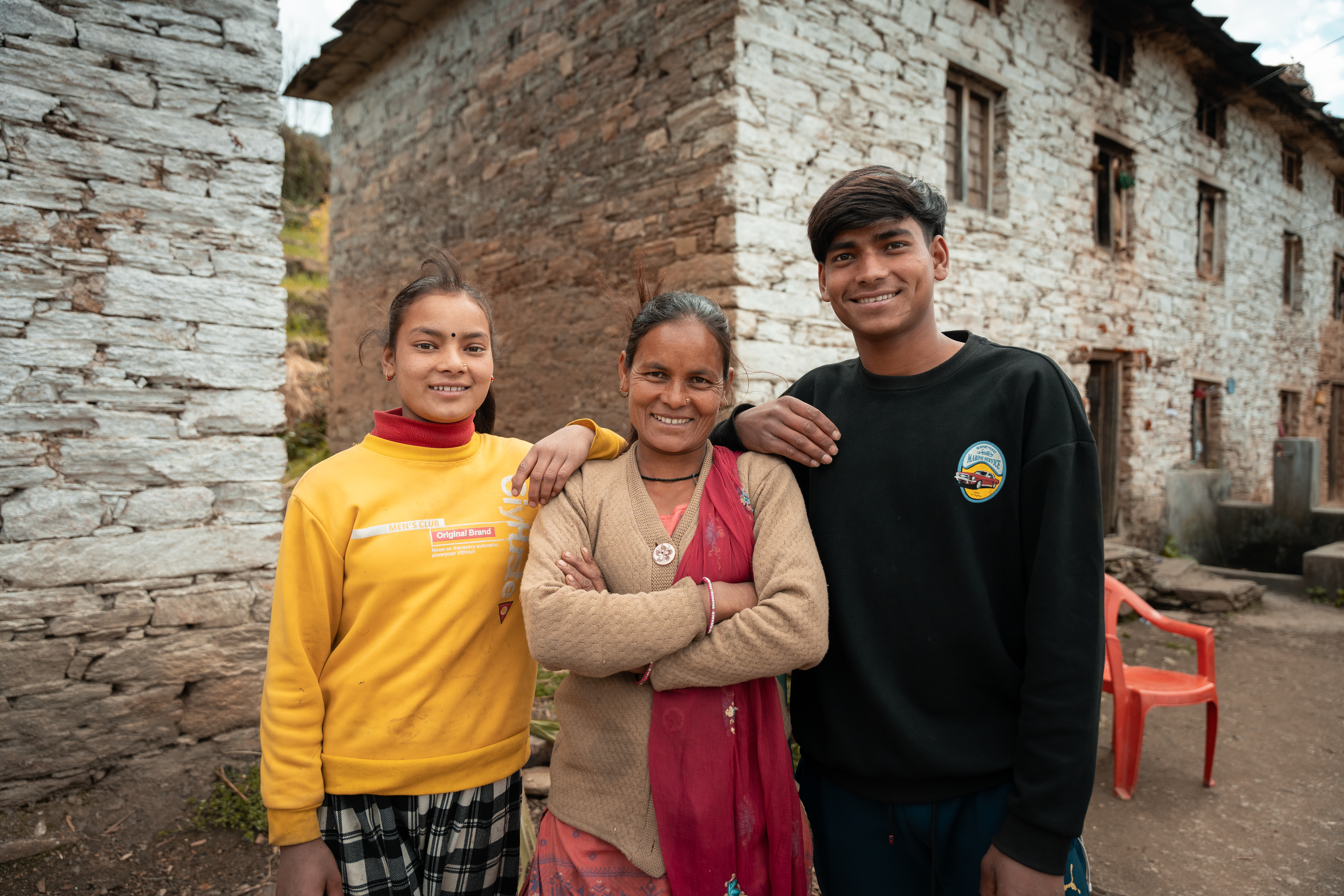
Inhabiting the north-central hills of Achham district, Amrita lives with her mother-in-law and two children, a 13-year-old daughter and a 19-year-old son. Things were not as dire before her husband decided to go abroad for employment to provide more for his family. The family were not able to communicate on a regular basis due to the unavailability of means of communication and technology. Amrita’s husband was the primary provider while Amrita and her eldest son worked on the farms of landowners. After almost two years of Amrita’s husband’s departure, tragic news knocked on the family’s door – Amrita’s husband had lost his life working abroad.
A single mother with two young children to feed, Amrita was in quite the peril. The family didn’t have a home to live in and were constantly on the move around their community in search of temporary shelter and immediate sources of income. Even the temporary shelter came at a cost, which Amrita could barely afford. Occasional farm jobs for neighbours and any sort of labour work were the primary sources of income the family relied on. “I would earn ten fistful of grains for three days of my intense field and labour work”, Amrita expressed. It wasn’t enough to meet the dietary needs of the family of four, let alone other basic needs such as clothes, shelter, and education for the young ones. Amrita’s family was incapacitated by poverty and food insecurity, uncertain of what the future held for them as the lack of finances led to her children Karishma and Shital dropping out of school.
Amrita and her mother-in-law received monthly allowance from the government for single mother and old-age allowance respectively, which would be dispatched once every three months. However, it was not sufficient to sustain the family of four. “Will we work on other people’s land and carry their loads to sustain ourselves for the rest of our lives, mother?”, Amrita’s son Shital would ask her every once in a while. He also expressed his desire to go to the city in search of employment opportunities at a very young age, to which Amrita responded by saying he’s still too young to wander into the city looking for work and wanted him to study and develop skills and get better earning jobs in the future.
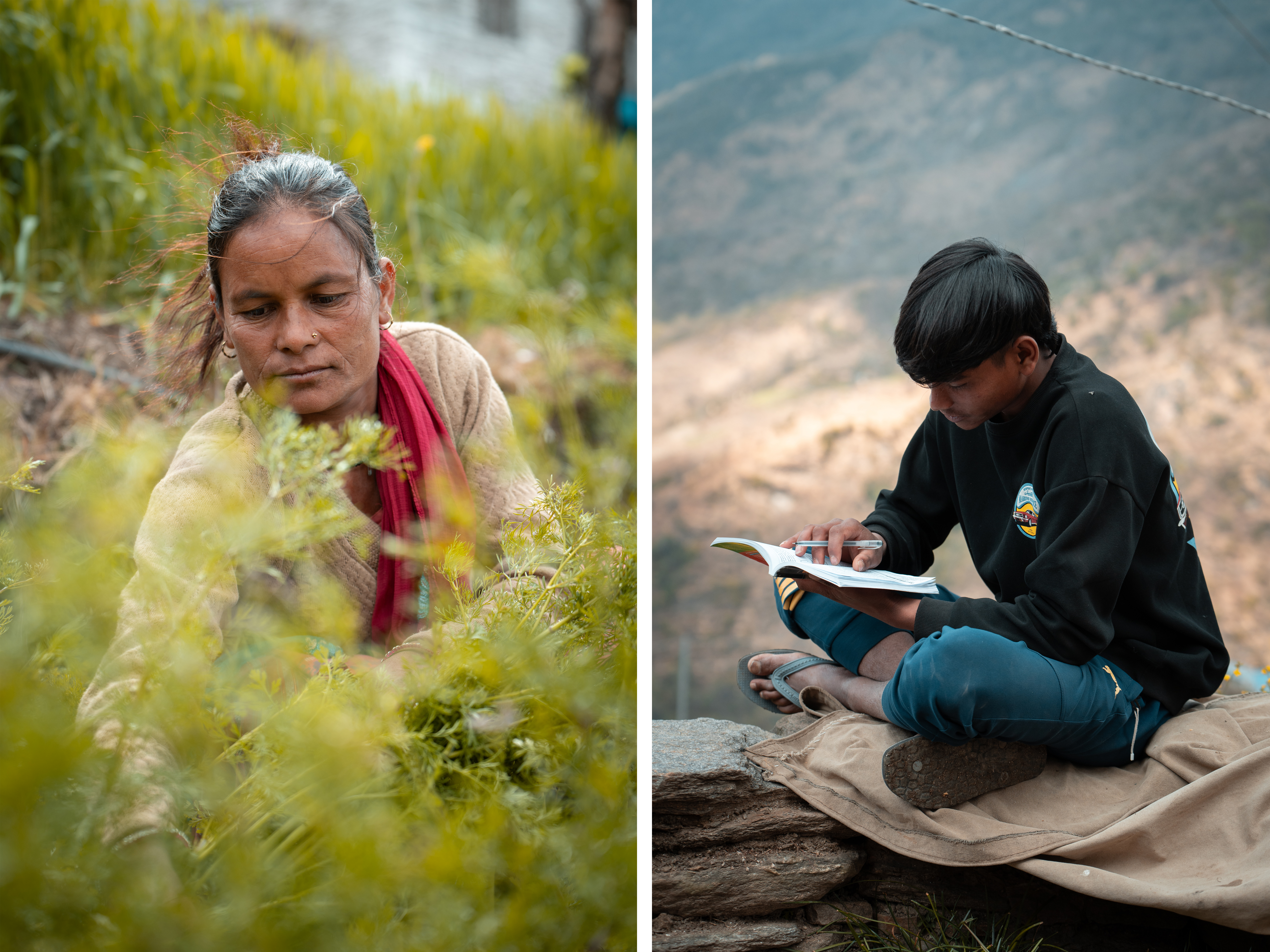
After learning that Amrita and her family would be a direct Programme participant of World Vision International Nepal’s Nutrition Resilient Livelihood (NRL) project, implemented in partnership with Working for Access and Creation Nepal (WAC Nepal), her eyes lit up and she was filled with immense joy. Amrita and her family were full of determination after being selected as recipients of five goats as grant from the project. She was also provided with a 5-day training session regarding animal husbandry along with usage of farming tools and techniques. This was a beacon of hope and the turning point for Amrita and her children. Now, the family could engage themselves in goat rearing and small-scale farming, instead of wandering around their community, seeking short-term work.
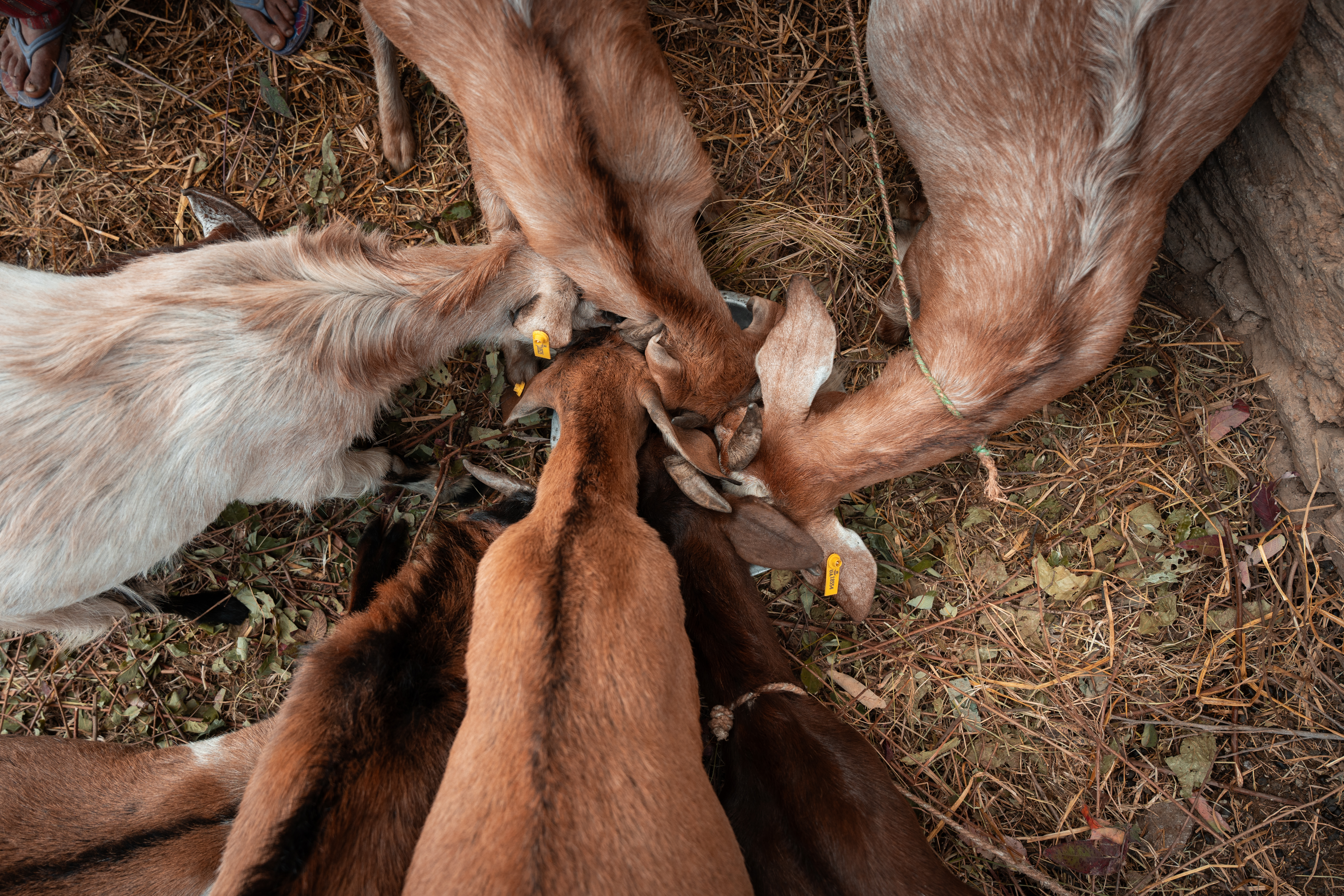
After two months of receiving the technical support, Amrita’s daughter, Karishma was selected as a registered child (RC) under World Vision’s Child Sponsorship Programme. Through child sponsorship, Karishma along with her family received goods such as school uniforms, learning materials, and she was able to participate in various orientation programmes. “I want to become a nurse when I grow up, and my dream is now well on track, thanks to World Vision and WAC Nepal”, Karishma said after being able to attend school on a regular basis.
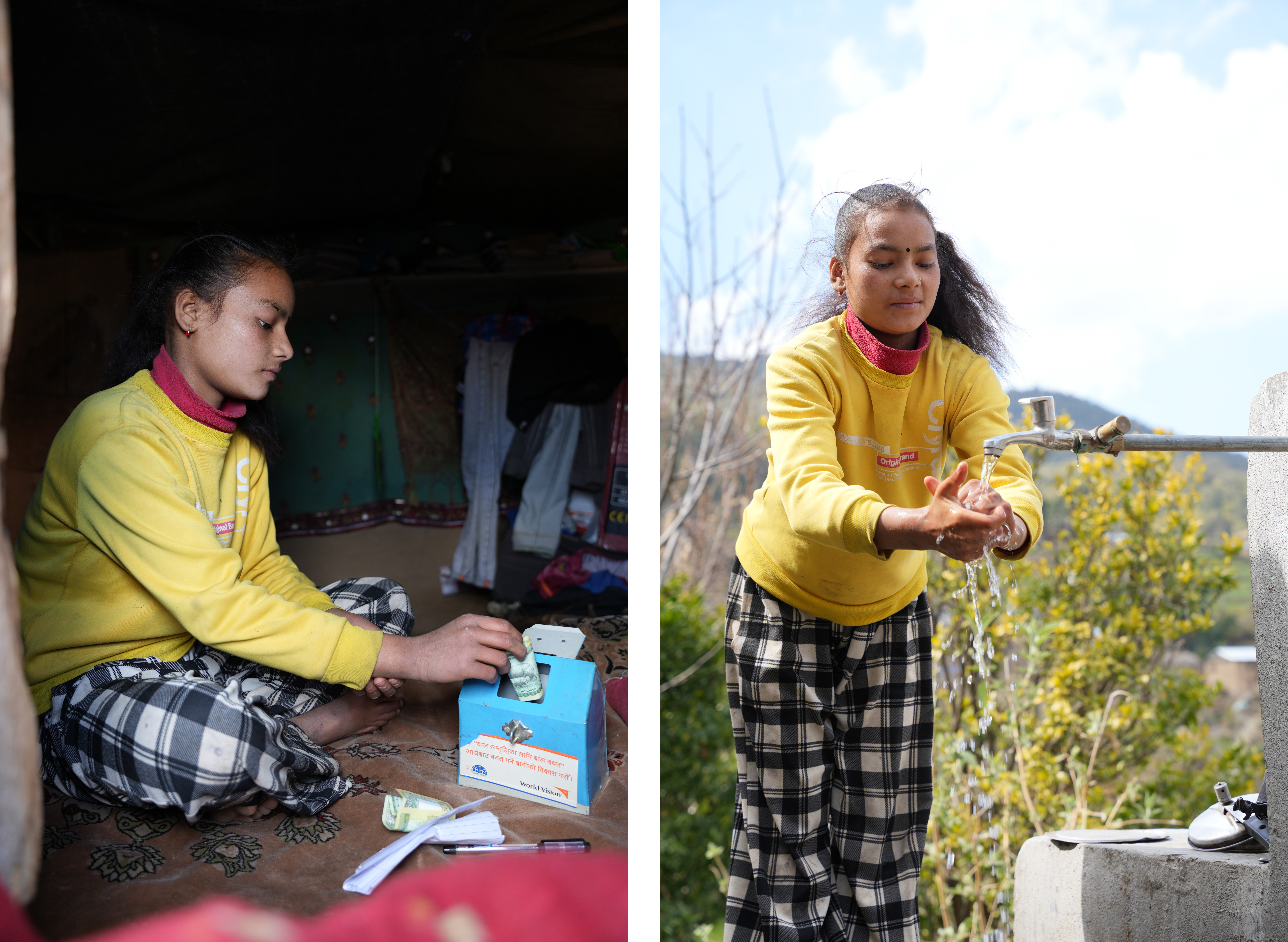
Within a year, the number of goats increased from 5 to 12. Despite not having a permanent place to live, nor a proper shed to shelter the goats, Amrita was doing an amazing job of rearing the goats and keeping them healthy. She sold a few goats and used the income to buy farming equipment, and a couple of hens too. With proper farming equipment and livestock of her own, Amrita was gradually becoming an independent farmer and could send both of her children back to school. She always believed in herself and her capabilities, but lacked the spark, which was eventually provided by the project. Her neighbours and community members would also encourage Amrita, provide her with occasional work, share their farmland with her, and would purchase her agricultural produce as well.
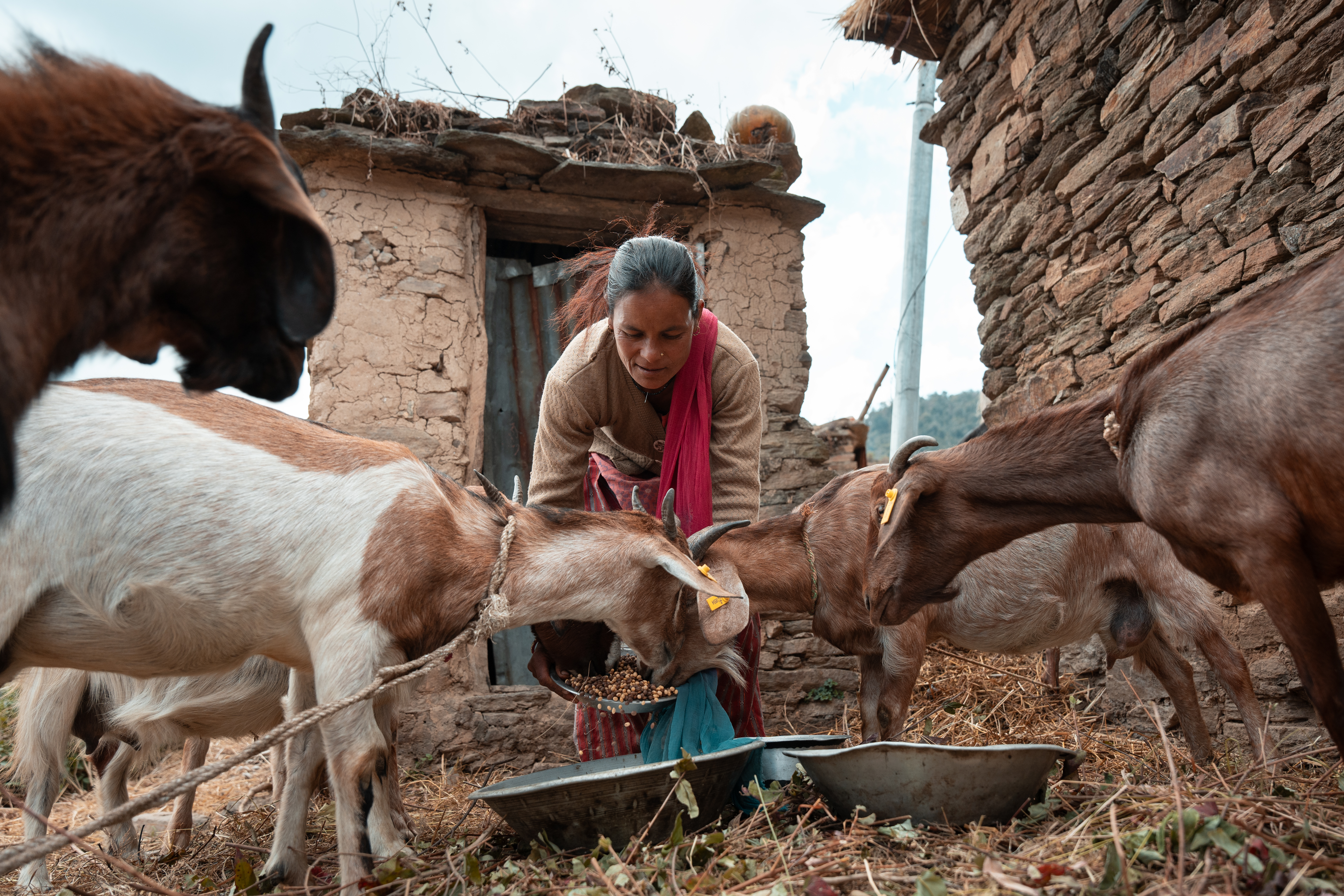
Due to unavailability of their own land, Amrita doesn’t have a safe place to keep the goats, which makes them vulnerable to leeches, wild animals, rainstorms, hail, lightning strikes, floods and landslides. Sometimes, the goats would become ill and lose their lives in a matter of days. It was a challenge as well as a learning opportunity for Amrita. The local government provided an awareness and orientation session on livestock management and livestock insurance. After the session, she was able to register her goats in the insurance programme which kept her covered in the case she lost her goats to illness or natural disasters. Within three years, Amrita was able to sell 19 goats and use the income to purchase an ox to help her in her farming. She wishes to construct a safe shed for the goats, but most of the income is spent on her children’s education, and to feed the family. She hopes to collect enough money to build a safe place for the goats to stay during the night and during harsh climate.
“World Vision and WAC Nepal are my family who have supported me in my desperate hours," expresses Amrita. She is now able to send her son to pursue an engineering course and to continue her daughter’s schooling, who is in the eighth grade now. “If it weren’t for the support, there would not be any stable sources of income, and everything that is possible right now wouldn’t have been possible,” she proclaims.
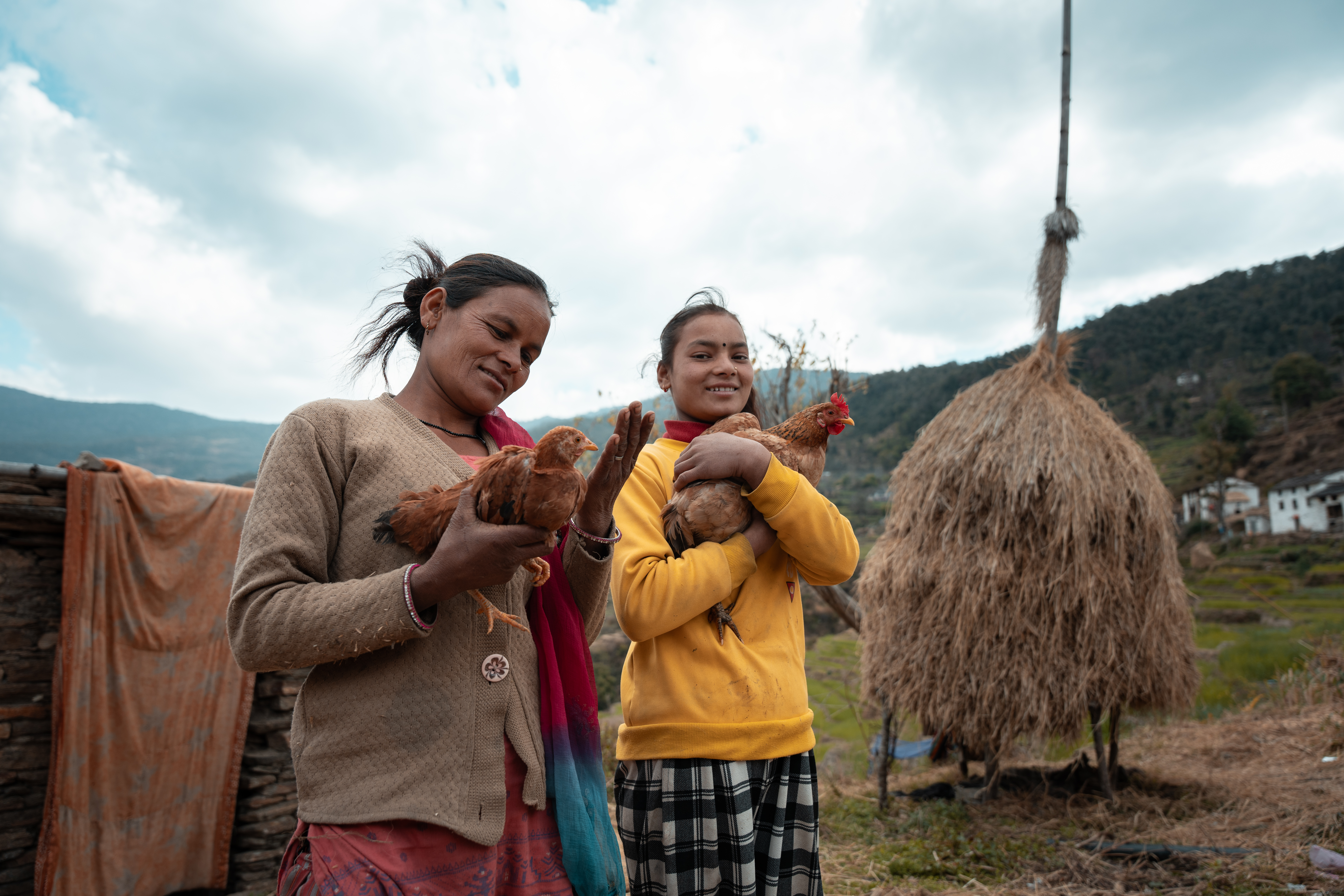
The nutritional status of Amrita and her family has also improved significantly. A proper diet is now possible, thanks to the income generated from goat rearing and small-scale farming. The family is glad that they don’t have to spread their hands in front of others asking for food every day. Karishma’s studies have improved significantly with the increase in her family’s living standards. She now has adequate learning materials such as books, copies, pens, pencils, and other stationery items. When asked what her favourite subject to study was, she responded, “My favourite subject is health education, because I get to learn about my own body, cleanliness and nutrition”. Along with attending school, she also attends extra tuition classes to improve her mathematics.
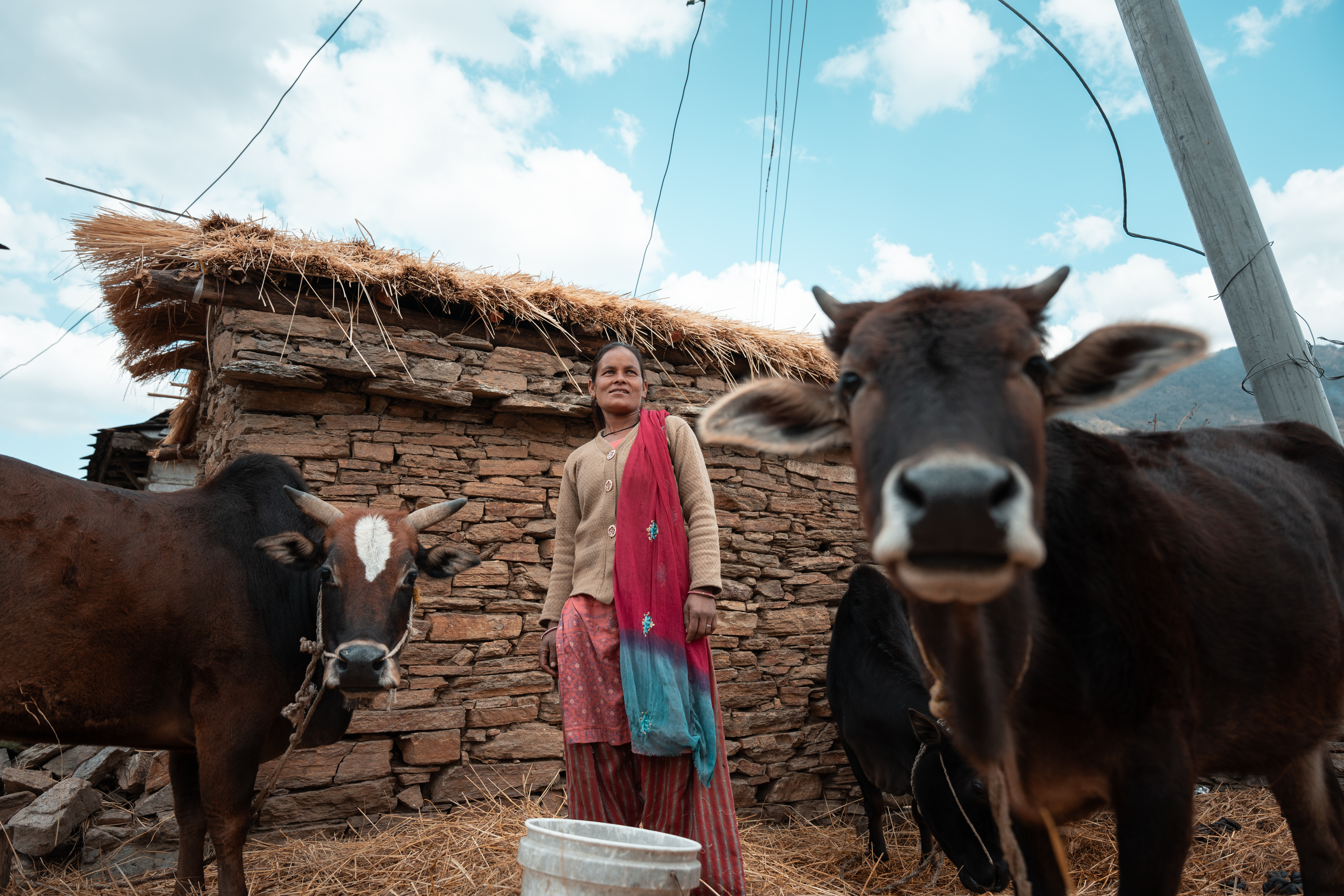
Today, Amrita is involved in other income-generating activities along with goat rearing. She is engaged in shared farming, where out of all the yield, half of it is provided to her, and half is for the landowners. Some of her yields include corn, millet, wheat, soybean, and rice. She also grows vegetables such as potato, onion, spinach, coriander, and garlic. “I have even started participating in social groups such as Aama Samuha (Mother’s Group), Cooperative Group, Community Forest Group, Savings Group and Agriculture Group”, Amrita shared. She along with her children have also developed habits of saving money in microfinance, which could certainly be used for a worthy cause in the future.